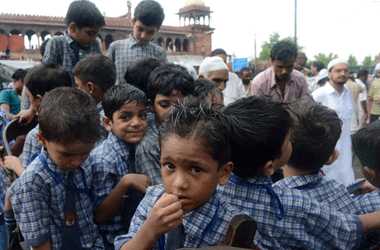
New Delhi, Feb 19: The Right to Education Act is not applicable to nursery admissions, Delhi high court ruled on Tuesday disposing off the related public interest litigation (PIL). Ongoing nursery admission process will remain unaffected in the capital, the court said.
The PIL, filed by NGO Social Jurist, challenged two government notifications giving powers to unaided private schools to formulate their own criteria for nursery class admission. The notifications were issued by the Union Human Resources Development ministry and the Delhi government.
It was alleged in the PIL that the notifications negated the Right of Children to Free and Compulsory Education Act (RTE Act) as the private unaided schools were allowed to formulate their own criteria for nursery admission. It also amounted to favouring a child over another on various grounds such as alumni and sibling, the petition said.
The verdict delivered by a bench of Chief Justice D Murugesan and Justice V K Jain, will assumed significance in the backdrop of the Centre's contention that the RTE Act is not applicable to nursery admission and the Delhi government can make its own policies.
The HRD ministry has maintained the RTE Act provides for "free and compulsory elementary education" for children aged between 6 and 14 years and the state government is free to make "rules" for pre-school education for kids below 6 years. The Delhi government, through its counsel Ajnum Javed, has said it has only followed the Centre's notification.
However, Ashok Agarwal, counsel for the NGO, had opposed the contention, saying it would virtually negate RTE Act as no seat would be left for 6-plus kids.
On November 23, 2010, the HRD ministry had issued guidelines under the RTE Act that had allowed the schools to frame their own admission criteria, the NGO has submitted. Later, Department of Education under the Delhi government also issued the similar guidelines, it said.






Comments
Add new comment